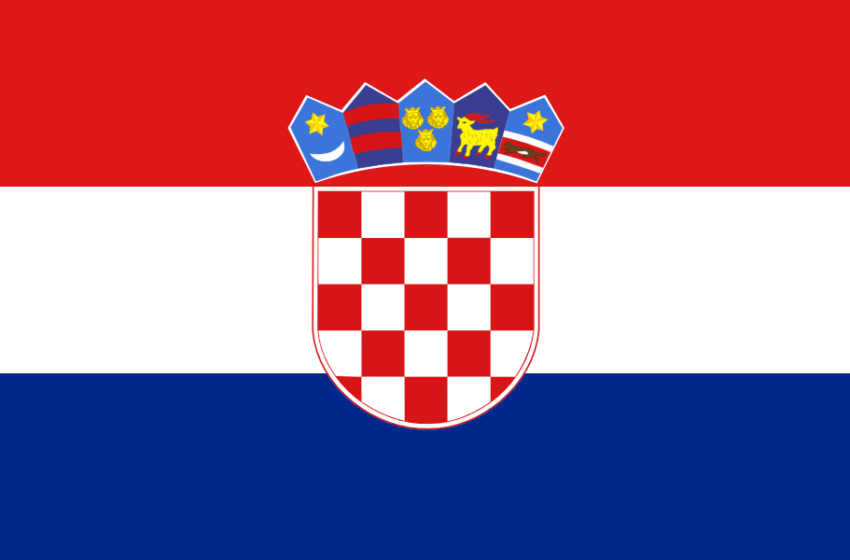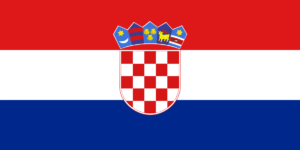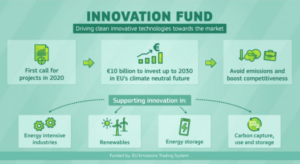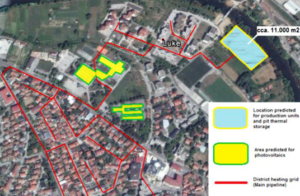Croatia: Tourism Sector Profits from Solar Thermal Subsidy
April 2, 2013
Parallel to the residential subsidy scheme, the Croatian Environmental Protection and Energy Efficiency Fund (EPEEF) has been offering financial support to private and public entities since December 2012. The interest-free loans cover up to 40% of the total investment in the renewable system, up to a maximum amount of Croatian Kuna (HRK) 1.4 million (approx. EUR 185,000) and a maximum repayment period of seven years. Eligible technologies include solar thermal, off-grid photovoltaics and heat pumps. The programme allows only two projects per company. The photo shows the Zaton campsite near Zadar, at which Croatian collector manufacturer Tehnomont installed 238 collectors.
Since the start of the commercial subsidy programme in 2010, EPEEF has supported around 60 renewable projects – including solar thermal technology – with a total amount of HRK 26.32 million. This amounts to an overall investment of approximately HRK 54 million (you will find more information about the programme in the table below and in the attached document in Croatian).
The target group of this public tender is the tourism sector. According to Tomislav Orlic, Solar Department Manager of Tehnomont, it is precisely this sector which has the biggest potential for solar thermal technology. “Considering that Croatia is a tourist country, we believe that the solar thermal market shows great potential, because the sun is following the water consumption in summer – the strongest irradiation in July and August meets the highest water consumption in the tourism sector.”
Although Orlic says that the market has been growing slowly but steadily, Prof Bernard Franković of the University of Rijeka and Chair of the Eurosun conference views the sector’s development more cautiously: “Normally, our solar service is suitable for luxury hotels. The majority of these hotels, however, have air conditioning for the entire premises or at least for the main rooms, main hall, restaurants etc. This means that a lot of heat pumps or water chillers areused for cooling during the summer season, leaving a large amount of waste heat,” he explains. The professor assumes that the number of square metres used for solar collectors in these hotels is going down, because of the use of waste heat to produce hot water. According to Franković, only about one third of the systems have been installed at less luxury spots, for instance, in guest houses or on campsites.
Still, this tourism segment has much space and potential to tap. A study of the economic possibilities of solar energy use in tourism written by Marinela Krstinić Nižić and Elena Rudan from the University of Rijeka and presented at the Eurosun has confirmed the enormous but unused potential in Croatia’s camping tourism. The study’s results show that “campsites represent the most suitable places for solar energy use to produce domestic hot water. From May to October, there is an almost perfect match of hot water demand and available energy from the sun (75% coverage). And generally speaking, both campsite owners and campers are interested in the environment and its preservation.”
When interpreting data on installed capacities in Croatia, it is necessary to bear in mind that “there have not yet been any reliable statistical data on the installed collector area”, according to the annual Croatian energy report. The newly installed collector area according to this study is estimated at 19,000 m² for 2011 and the accumulated area at the end of 2011 is 109,000m² (see the attached document).
More information:
Environmental Protection and Energy Efficiency Fund: http://www.fzoeu.hr/hrv/index.asp
Tehnomont: http://www.tehnomont.hr/
This text was written by Vladislava Adamenkova, a Czech student of International Business Studies in Vienna, Austria.
Parallel to the residential subsidy scheme, the Croatian Environmental Protection and Energy Efficiency Fund (EPEEF) has been offering financial support to private and public entities. In this case, the loan covers up to 40% of the total amount invested in the project, up to Croatian Kuna (HRK) 1.4 million (approx. EUR 184,550) and a maximum repayment period of seven years. If the applicant receives a loan from a different bank, EPEEF is offering to subsidise the interest rates up to HRK 800,000 (approx. EUR 105,470).
This table was researched by Vladislava Adamenkova, a Czech student of International Business Studies in Vienna, Austria.
| Country / region | Croatia |
| Name of programme | Public tender for private and public entities in the tourism and other commercial sectors by National Environmental Protection and Energy Efficiency Fund |
| Type of incentive | Interest-free loans
Subsidising the interest of loans from other sources than the fund Focus on building projects for better energy efficiency, as well as on systems saving emissions at lower cost |
| Eligible technologies | Solar thermal systems for domestic hot water and space heating, wood boilers, heat pumps, off-grid PV systems, off-grid wind systems, energy efficiency measures |
| Applicable sectors | Legal entities in the tourism and other commercial sectors |
| Amount and maximum incentive | Entities can choose between two options
Interest-free loans from the fund: up to seven years with a maximum of 40% of the total investment or Croatian Kuna (HRK) 1.4 million (approx. EUR 184,550) Subsidising interest rates if loan is from another bank: Maximum of HRK 800,000 (approx. EUR 105,470) Only two subsidised projects per company |
| Requirements for system | No specific requirements stipulated |
| Requirements for installation | No specific requirements stipulated |
| Finance provider | National Environmental Protection and Energy Efficiency Fund |
| Total funds | n/a |
| Funding source | Funding comes from big industrial polluters, motor vehicle registration or levy on the electricity bill of natural and legal persons |
| Effective date | December 2012 |
| Expiration date | No date published yet |
| Website | http://www.fzoeu.hr/ |
| Last review of this tabloid | March 2013 |
| Contact | Jasmina Smokvina
Phone: 00385 15391841 Davor Momčinović Phone: 00385 15391918 E-mail: hotelijerstvo-natjecaj@fzoeu.hr |


